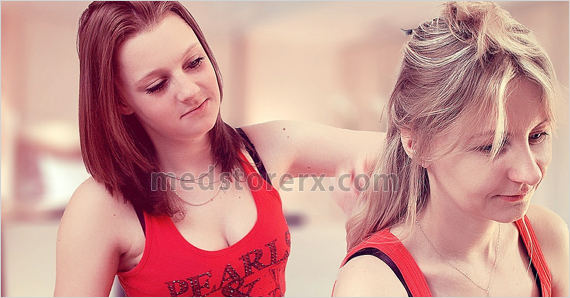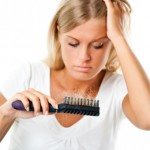More often, the kind of skin you have indirectly or directly affects your hair. Scalp generates essential oil in order to provide nourishment to the hair, any issue with scalp can directly affect the air growth and development.
 Massaging hair roots with natural oils such as almond, castor, and olive once in a week can significantly improve your hair growth.
Massaging hair roots with natural oils such as almond, castor, and olive once in a week can significantly improve your hair growth.
DO’S
• Take good care of your overall health
Healthy body promotes healthy hair. Hair needs a good amount of protein, vitamins, iron and other nutrients to stay healthy. Therefore, try to eat organic foods like green leafy vegetables, fruits, beans, legumes and whole-grains. At the same time, perform regular exercise and manage stress.
• Nourish your scalp with oil
Oiling your hair is the best method to strengthen and nourish your hair. Nourishing your scalp with oil twice a week will strengthen the hair follicles and prevent your hair from greying, thinning and falling.
• Protect your hair from sun
Morning sunrays are good for your health, but repeated exposure will damage your hair and make them dry. Protect your hair from these harsh rays by using a hat or scarf. Use moisturizing shampoos and conditioners to protect your hair from ultraviolet rays. A conditioning treatment at salon after prolonged exposure to sun can help rejuvenate your hair.
• Brush in correct way
Brush your hair regularly to remove the dirt, dust, and dry scalp particles. If you want to brush your wet hair, use a wide-tooth comb.
• Trim your hair regularly
Trimming your hair every six to eight weeks is necessary to keep your hair away from split ends. People who do more hair styling need frequent trims than those who don’t.
• Do check on ingredients of your cosmetic product
Check your shampoo and conditioner label before using it. If the product contains sodium lauryl sulfate, sodium laureth sulphate or ammonium, then it could spoil your hair. According to researchers, organic products are better than the artificially medicated ones.
DON’TS
• Avoid excessive swimming
Excessive swimming without cap can lead to hair damage, as pool water contains salt, chlorine and other chemicals. Therefore, try to wear a cap while swimming. If you are not wearing it, cut down your duration of swimming
• Stop excess hair styling
It is best to dry your hair naturally; dryer makes your hair accessibly dry and brittles. Straightening can make your hair look smooth and shining at the initial stage, but later your hair is susceptible to breakage. Overusing styling products damages your hair; hence, try to stay away from them as much as possible.
• Never tie your hair tightly
Pulling and twisting hair can lead to traction alopecia. Switch to hairstyles that do not damage the root of your hair and keep your hair open before going to bed.
• Don’t over wash it
Frequent hair wash causes dryness and eliminates essential natural oils from your scalp and hair. Therefore, avoid washing your hair too frequently.
• Avoid rubbing damp hair with towel
When your hair is wet, they are a bit weaker. Rubbing wet hair causes breakage, instead squeeze your hair a little to make them dry.


 Cart : 0 items - $0.00
Cart : 0 items - $0.00










